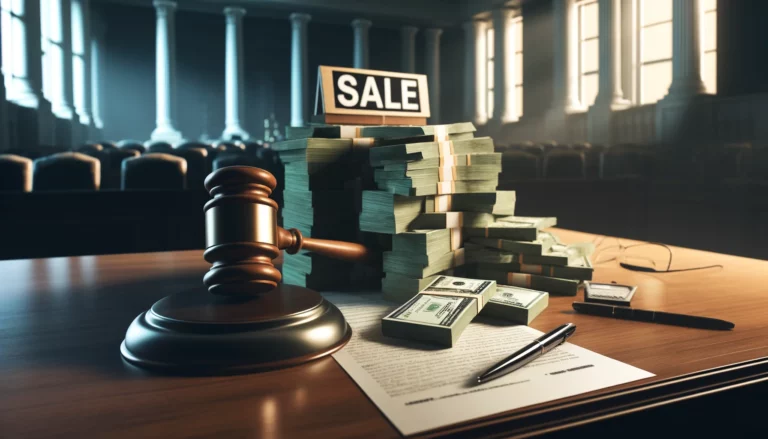All Categories
Featured
Table of Contents
Many of those home owners really did not also recognize what excess were or that they were also owed any type of surplus funds at all. When a house owner is not able to pay property tax obligations on their home, they might shed their home in what is recognized as a tax sale auction or a constable's sale.
At a tax sale auction, residential properties are offered to the greatest bidder, however, in many cases, a building may offer for more than what was owed to the region, which leads to what are referred to as surplus funds or tax sale excess. Tax sale overages are the additional money left over when a foreclosed property is marketed at a tax obligation sale public auction for even more than the quantity of back taxes owed on the building.
If the home offers for even more than the opening proposal, after that excess will be created. What a lot of house owners do not recognize is that numerous states do not allow areas to keep this additional cash for themselves. Some state statutes dictate that excess funds can only be asserted by a couple of parties - including the person who owed taxes on the property at the time of the sale.
If the previous home owner owes $1,000.00 in back tax obligations, and the property offers for $100,000.00 at auction, then the regulation mentions that the previous property proprietor is owed the distinction of $99,000.00. The region does not reach maintain unclaimed tax obligation excess unless the funds are still not asserted after 5 years.
Secure Unclaimed Tax Sale Overages Training Tax Overages Business Opportunities
Nonetheless, the notification will normally be sent by mail to the address of the home that was sold, however since the previous residential or commercial property proprietor no more lives at that address, they usually do not obtain this notice unless their mail was being forwarded. If you are in this scenario, don't allow the federal government keep money that you are entitled to.

Every so often, I hear discuss a "secret new possibility" in business of (a.k.a, "excess earnings," "overbids," "tax obligation sale excess," and so on). If you're entirely unknown with this principle, I would love to give you a quick overview of what's going on right here. When a homeowner stops paying their home tax obligations, the neighborhood community (i.e., the region) will wait for a time before they confiscate the residential property in foreclosure and offer it at their annual tax obligation sale auction.
uses a similar design to recover its lost tax income by selling residential or commercial properties (either tax acts or tax obligation liens) at an annual tax obligation sale. The information in this article can be influenced by numerous one-of-a-kind variables. Constantly seek advice from a certified lawful professional before taking action. Suppose you possess a building worth $100,000.
Specialist Tax Sale Overages Training Tax Overage Recovery Strategies

At the time of foreclosure, you owe concerning to the region. A couple of months later, the area brings this home to their annual tax sale. Right here, they market your residential or commercial property (along with loads of other overdue residential properties) to the highest possible bidderall to recoup their lost tax profits on each parcel.
This is due to the fact that it's the minimum they will require to recover the cash that you owed them. Right here's the point: Your home is conveniently worth $100,000. A lot of the financiers bidding process on your building are completely mindful of this, too. In a lot of cases, residential or commercial properties like yours will certainly get bids much past the amount of back tax obligations really owed.
Yet get this: the county just required $18,000 out of this building. The margin between the $18,000 they required and the $40,000 they obtained is known as "excess proceeds" (i.e., "tax sales excess," "overbid," "surplus," and so on). Numerous states have laws that ban the area from keeping the excess settlement for these properties.
The area has regulations in place where these excess profits can be declared by their rightful proprietor, usually for a designated duration (which varies from one state to another). And who precisely is the "rightful owner" of this money? In the majority of situations, it's YOU. That's! If you lost your building to tax obligation foreclosure due to the fact that you owed taxesand if that residential or commercial property consequently cost the tax obligation sale public auction for over this amountyou could feasibly go and collect the difference.
Renowned Tax Overages Business Opportunities Course Overages List By County
This consists of showing you were the prior owner, finishing some documentation, and awaiting the funds to be delivered. For the typical individual who paid complete market price for their property, this technique does not make much sense. If you have a serious amount of cash spent right into a home, there's method too a lot on the line to just "allow it go" on the off-chance that you can milk some extra money out of it.
With the investing technique I utilize, I can purchase residential properties totally free and clear for dimes on the dollar. To the shock of some financiers, these bargains are Assuming you understand where to look, it's frankly simple to discover them. When you can get a residential property for an extremely low-cost rate AND you know it's worth substantially even more than you spent for it, it might effectively make sense for you to "chance" and try to accumulate the excess proceeds that the tax repossession and public auction process produce.
Renowned Tax Foreclosure Overages Course Foreclosure Overages List
While it can certainly pan out similar to the way I've described it above, there are additionally a few disadvantages to the excess proceeds approach you actually ought to recognize. Tax Overages List. While it depends significantly on the qualities of the property, it is (and sometimes, likely) that there will be no excess profits created at the tax obligation sale auction
Or maybe the area does not create much public interest in their public auctions. In either case, if you're acquiring a residential property with the of letting it go to tax obligation repossession so you can collect your excess profits, suppose that cash never comes through? Would certainly it deserve the time and money you will have squandered as soon as you reach this verdict? If you're expecting the county to "do all the work" for you, after that presume what, In lots of cases, their timetable will actually take years to turn out.
The initial time I sought this approach in my home state, I was informed that I really did not have the option of claiming the excess funds that were generated from the sale of my propertybecause my state didn't allow it (Tax Deed Overages). In states such as this, when they create a tax obligation sale overage at a public auction, They simply keep it! If you're considering using this approach in your business, you'll wish to think long and tough about where you're doing service and whether their regulations and statutes will also allow you to do it
Innovative Best States For Tax Overages Blueprint Tax Auction Overages
I did my ideal to provide the appropriate response for each state over, but I 'd suggest that you prior to waging the assumption that I'm 100% proper. Bear in mind, I am not a lawyer or a certified public accountant and I am not trying to offer professional lawful or tax obligation recommendations. Talk to your lawyer or certified public accountant prior to you act on this details.
Table of Contents
Latest Posts
List Of Tax Foreclosures
Tax Liens Houses For Sale
Foreclosure Overages List
More
Latest Posts
List Of Tax Foreclosures
Tax Liens Houses For Sale
Foreclosure Overages List